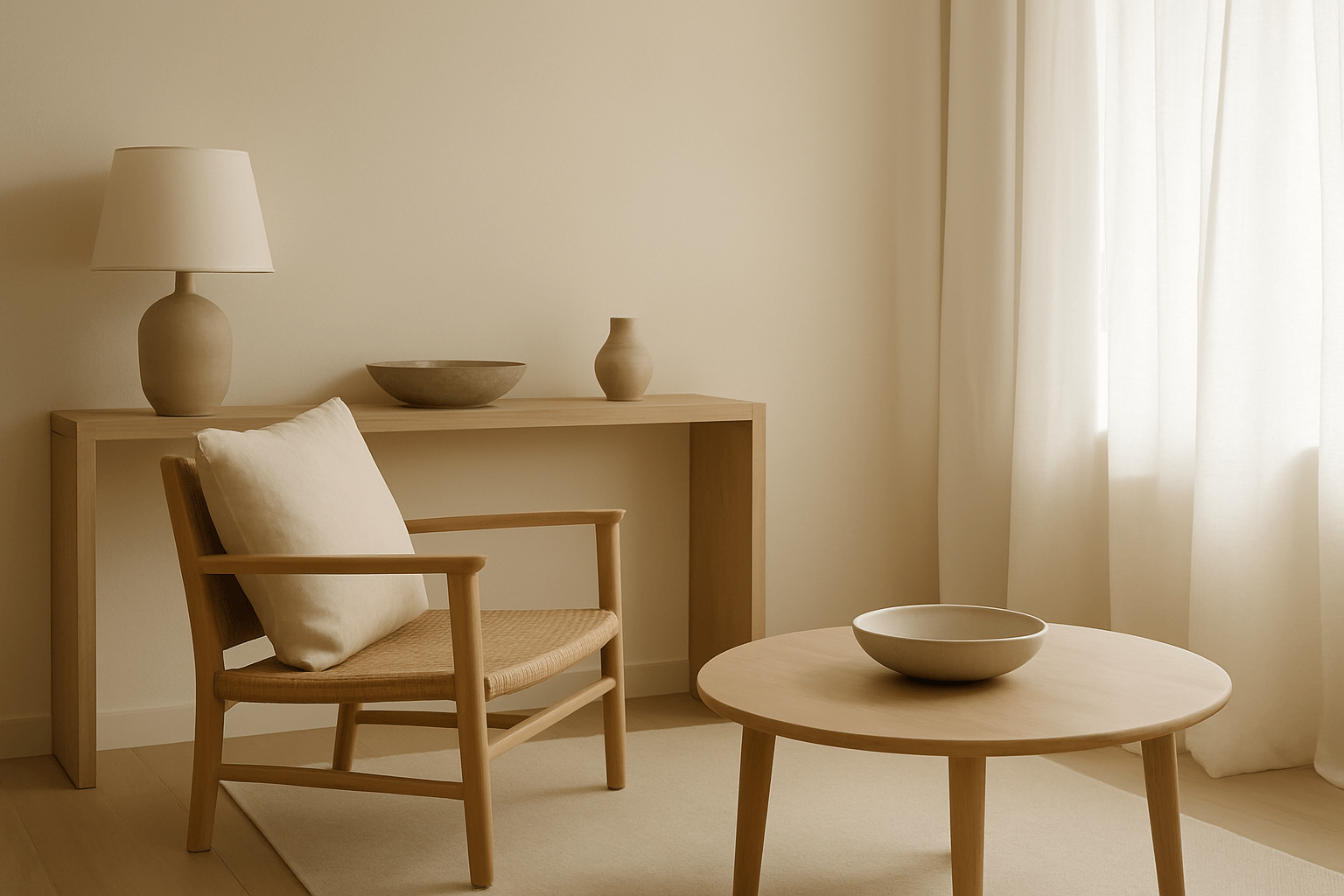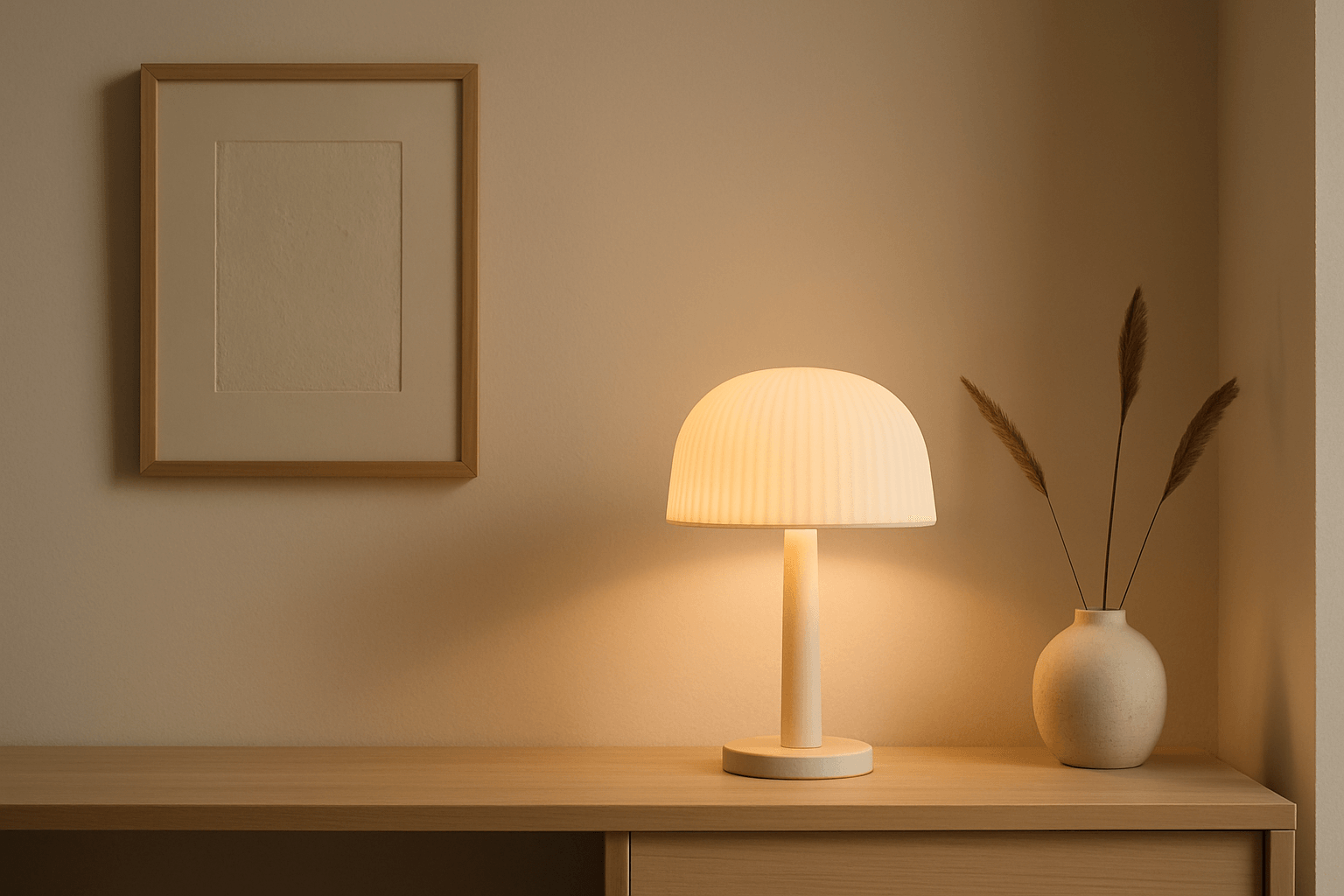The Fine Line Between Styled and Stiff
Minimalist interiors thrive on balance — between presence and absence, detail and simplicity. But there’s a common trap: over-styling.
When a space becomes too perfect, too polished, it can start to feel lifeless. Styling without over-styling means allowing for air, flow, and ease — while still shaping a cohesive space.
1. Don't Fill — Frame
The purpose of styling isn’t to fill space — it’s to frame it. Let your decor:
-
Emphasize architecture
-
Highlight natural light
-
Draw attention to one or two thoughtful details
A single handmade object on a clean shelf often speaks louder than an entire vignette.
2. Use Fewer Objects with More Presence
Choose pieces that:
-
Have visual weight or texture
-
Are useful as well as beautiful
-
Reflect the mood of the room
Think: a stone bowl, a sculptural lamp, or a folded linen throw. Keep it quiet, but intentional.
3. Avoid Over-Symmetry
Perfect symmetry can feel rigid. Instead, aim for visual balance that’s a little off-center.
Try:
-
Placing a lamp slightly away from the midpoint
-
Using odd-number groupings (1, 3, or 5)
-
Leaving one shelf or corner empty
This creates movement — a visual rhythm that feels relaxed, not forced.
4. Let Light and Shadow Do Some of the Work
Don’t style every corner. Let light do some of the styling for you:
-
Highlight empty space
-
Create contrast against negative space
-
Let shadows become part of the composition
Stillness doesn’t have to be staged — it can just be noticed.
5. Rotate, Don’t Accumulate
Minimal styling doesn’t mean your space never changes. It just means it evolves slowly, with care.
Instead of adding more:
-
Rotate decor seasonally
-
Refresh with textures, not volume
-
Let absence be part of the design
Styling becomes a quiet ritual, not a rush to complete.
Final Thought
The best-styled minimalist homes don’t look styled at all — they look lived in, lightly.
They hold attention, not demand it.
They invite ease, not performance.
They breathe — just enough.
















